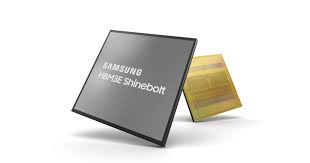Recently, the news that Samsung Electronics' latest high-bandwidth memory (HBM) chips, HBM3 and HBM3E, failed to pass NVIDIA's test standards, has attracted widespread attention in the industry. According to Reuters, a person familiar with the matter revealed that heating and power consumption problems caused Samsung's HBM chip to fail to meet Nvidia's test requirements. The news has raised concerns among the industry and investors that Samsung may fall behind in the competition with competitors such as SK hynix and Micron.
However, Samsung Electronics was quick to deny the reports. In an official statement, Samsung Electronics said that the claim that its HBM chip failed Nvidia's test due to heat and power consumption issues was "untrue." The company emphasized that they are smoothly carrying out the testing process of HBM chips with several global partners, adding that they are committed to providing the best products and working closely with customers to optimize the products.
Samsung Electronics also pointed out that HBM is a custom memory product that needs to be optimized according to customer needs. The company is optimizing its products by working closely with its customers and refuses to comment on specific customers. In addition, Nvidia did not comment on the matter.

Figure: Samsung's HBM3E did not pass NVIDIA's test standards, causing controversy
Despite reports that Samsung's 8-layer and 12-layer HBM3E chips failed in April's tests, Samsung Electronics said their HBM chip tests are proceeding smoothly as planned. This shows that despite the challenges, Samsung Electronics remains confident in the performance and market prospects of its HBM chips.
It is worth noting that although Nvidia is the world's leading manufacturer of graphics processors and has strict testing standards for HBM chips, Samsung Electronics has already supplied such chips to other customers, showing the market competitiveness of its products. In addition, with the rise of the generative AI boom, the demand for complex GPUs has skyrocketed, and the demand for HBM has also increased, providing an opportunity for Samsung Electronics to further develop its HBM business.
In conclusion, although reports that Samsung's HBM chips failed Nvidia's tests have attracted market attention, Samsung Electronics' official response shows that the company is actively responding to the challenges and working closely with customers to ensure that its HBM chips can meet market demand. With the rapid development of artificial intelligence and high-performance computing, the market demand for HBM chips is expected to continue to grow.






